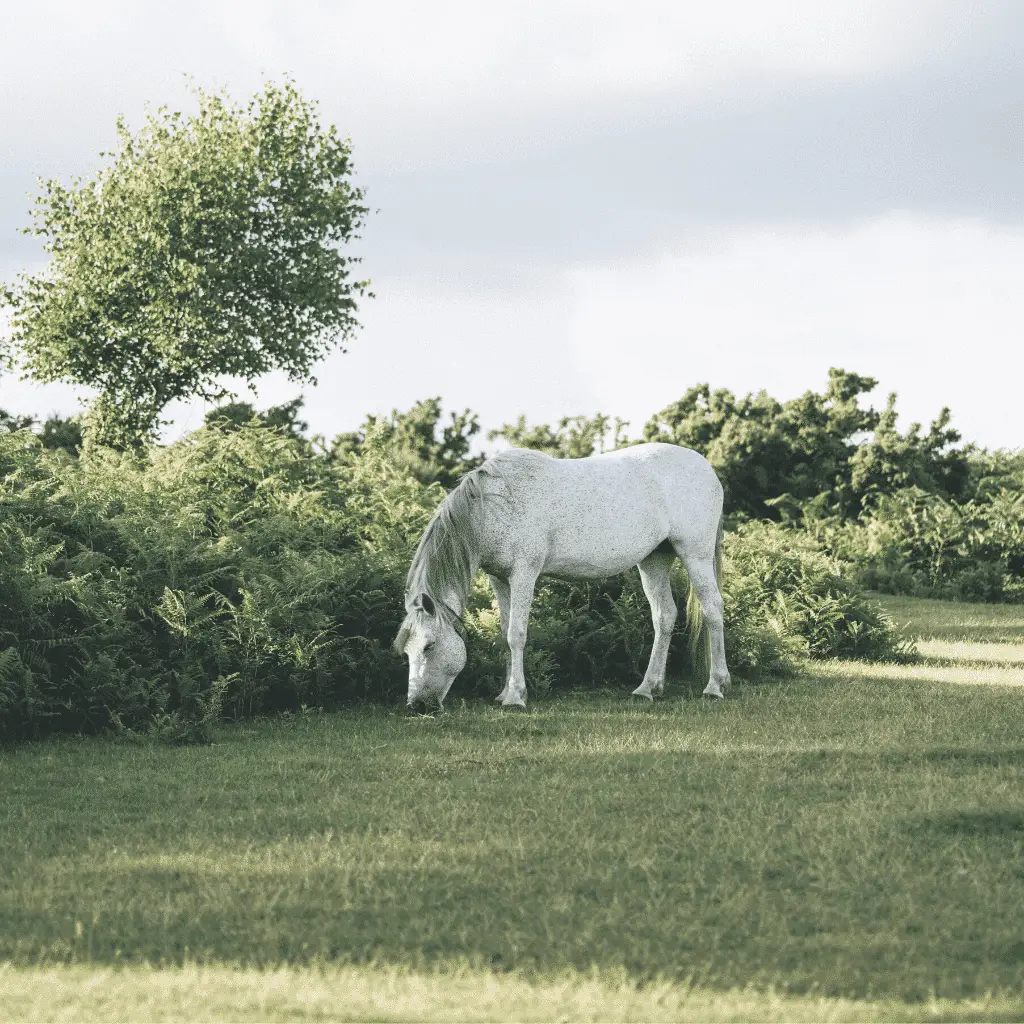
Grazing Your Horse Safely
Turn your horse out correctly!
Spring is finally here and that means the paddock season can begin! But start your spring grazing slowly! For some, it may seem excessive and far too time-consuming but caution is important. Diarrhea, colic and laminitis are the consequences of a quick change in feed. It is with the switch from hay to fresh grass that the horse’s sensitive intestinal flora must adjust to the new food supply. The pasture grass in spring is still relatively low in nutrients but very rich in protein and carbohydrates (e.g. fructans) which is the opposite of their primary hay diet during winter.
Everything About Grazing
Dangers During Grazing
With the increasingly strong sunlight in spring, the new pasture grass slowly starts to grow but at the same time long-chain carbohydrates (polysaccharides) are stored within the plant. These sugar compounds serve the pasture grass as a temporary energy store when plant growth is restricted due to low temperatures (especially in the morning – after cold nights). Horses then take in the fructan with the pasture grass, which causes a shift in the intestinal flora.
The combination of weather-induced high fructan and protein content in the pasture grass leads to a sudden, massive microbial colonisation (lactic acid bacteria) in the horse’s blind or large intestine and a drop in the pH value in the digestive tract. Severe flatulence leads to bloating and, in the worst case, to severe colic. Easy keepers such as Andalusians, Morgans, ponies and many draft breeds react very sensitive to this change. Although warmbloods have a higher tolerance threshold to proteins, they often react more quickly to such abrupt changes. Watery stools, diarrhoea, life-threatening colic and laminitis can then be the terrible consequences.
Year-Round Pasture Management
Fructans are mainly stored in the stem and in the stalk base. Very short, grazed off grass and mature grass often has an even higher concentration of fructans in spring. Switch pastures often to give the grass chances to recover. Temperatures also have an influence on the fructan content. After cold nights (below 8°C) in spring or in late summer, higher fructan levels can be expected in the early morning hours until well after midday.
How to Start Spring Turn-Out Safely
A healthy intestinal flora needs at least 14 days to 4 weeks to adjust to a change of feed. Therefore, grazing should take place very slowly. The grazing time should not be increased by more than 15 minutes per day. Horses that are sensitive or already chronically ill (obese horses or horses that have already had laminitis) should get introduced much slower and even later during the year. It is recommended to let horses with metabolic diseases (PSSM, EMS, Cushing) graze only when the grass is already about 25 cm high. In order to slow down the feed intake, a grazing muzzle can be considered in individual cases. However, this should always be done in consultation with your veterinarian.
Overview of the grazing tips
1. Before going to the paddock, offer your horse a good amount hay
2. Increase the grazing time slowly and carefully. Consider the individual needs of the horse (e.g. pregnant and lactating mares, pre-conditions)
3. There should always be enough water available
4. After grazing, always feed hay or straw first, later you can feed the daily concentrated feed
5. The intestinal flora needs at least 2 to 4 weeks to adjust to the change in feed
6. Obese or predisposed horses must be accustomed to pasture much more slowly
7. Make sure the grass is long enough (at least 20 to 25 cm) – the longer the grass, the more crude fibre and less protein and sugar!
8. In April to mid-May, temperatures can reach low degrees. If the sun shines in the morning after cold nights, be careful! To be on the safe side, let your horse graze only in the afternoon at first
9. If you deworm your horse, do it before and not during grazing. Since it puts more strain on the detoxification and digestive metabolism.
Spring Turn-Out x Happie Horse App
You want to plan the grazing time of your horse and get an overview of all the important factors, as well as always new insights around the topic of grazing and grazing season? Then download the Happie Horse App and stay up to date!
